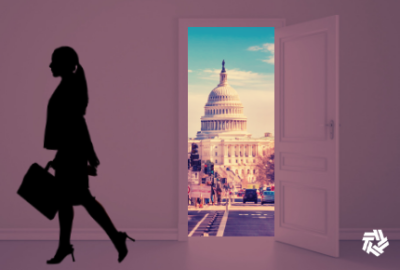

Choosing when to retire is never an easy decision, and the pandemic (during an election year) isn't helping feds either.
Have you been able to plan anything during this pandemic?
I know I haven’t. My plans for the weekend were up in the air until the last second. Like everything in 2020, they’re dependent on the weather.
This is all to say that those major life decisions — like when to retire — aren’t easy to make right now.
This time four years ago, we at Federal News Network were busy asking you about your retirement plans. A 2016 survey showed a real mixed bag.
Many of you said your decision to stay or go depended on your own personal finances, the stock market and your family and health. How your agency fared in the presidential transition with a new administration was a factor for some, but not all.
Former feds and other experts offered their own prediction though: That longtime career feds and senior executives who had delayed retirement during the aftermath of the Great Recession would see the 2016 election and subsequent transition as the excuse they needed to retire.
But the great exodus didn’t really happen in 2016, though retirements did rise significantly later in 2018, and then fell again in 2019.
Now in 2020, we’re on track for a 10-year low in federal retirements — thanks, in part, to the pandemic, the stock market volatility and those new telework arrangements at work.
Last week’s column on retirement claims during the pandemic published the morning the Office of Personnel Management released new numbers for the month of September.
OPM data through August showed fewer feds are retiring in 2020 compared to previous years. And the release of new data seems to underscore the trend.
Just 6,244 federal employees filed for retirement in September, the fewest of any month in 2020, according to the latest OPM data.
Retirement claims haven’t fallen below 6,300 since last December, when just 5,205 employees applied for retirement. About 7,456 federal employees filed for retirement last September.
One reader, a president for a National Treasury Employees Union local in Indiana, suggested his agency struggled to process retirement paperwork in the earliest days of the health crisis. Fearing paperwork delays at his agency and OPM, he advised his members to think about putting off retirement if they could.
Since the early days of the pandemic, OPM has maintained the ongoing health crisis would have little to no effect on its ability to process retirements.
“COVID-19 has not affected Retirement Services’ ability to process applications or deliver timely payments,” a message on the OPM website reads. “We understand the importance of the payments and services we provide and are standing by to help.”
The message goes on to direct employees and annuitants to OPM’s online self-services.
It’s possible delays at your agency — the retirement process is still largely paper-based — perhaps slowed retirements this spring, at least initially.
But if anything, the September data seems to underscore that fewer feds have been interested in retiring so far this year.
Our survey from four years ago told us feds usually aren’t thinking about who the next president will be when they plan for retirement. Your TSP, your health and family and your future plans do, and many of those things are still up in the air during the pandemic.
Greg Klingler, director of wealth management at the nonprofit Government Employees’ Benefit Association, said he usually doesn’t see a direct correlation between an election and federal retirements.
There are, however, some indirect ways past elections have influenced federal employees’ retirement plans.
“Typically speaking, the markets go down in October and September,” he said. “We see that happen every four years on the average. A reduction in the TSP very well could have the effect of delaying retirement. The choice of the presidential candidate and their decisions on fiscal policy could also have some ramifications on what the financial markets do and indirectly what people do with their retirement.”
And that’s in a “normal” year.
So what’s next? The data shows many feds are taking the “wait-and-see” approach this year — and maybe the next one, too.
“Regardless of the situations associated with the pandemic they are going to pull the trigger at some point,” Klingler said of retirement-eligible feds. “I think you are going to get a natural spike, maybe at the one, potentially the second anniversary of when they were originally planning on retiring. They’re only going to hold off for so long.”
Source: Mental Floss
Copyright © 2025 Federal News Network. All rights reserved. This website is not intended for users located within the European Economic Area.
Nicole Ogrysko is a reporter for Federal News Network focusing on the federal workforce and federal pay and benefits.
Follow @nogryskoWFED

